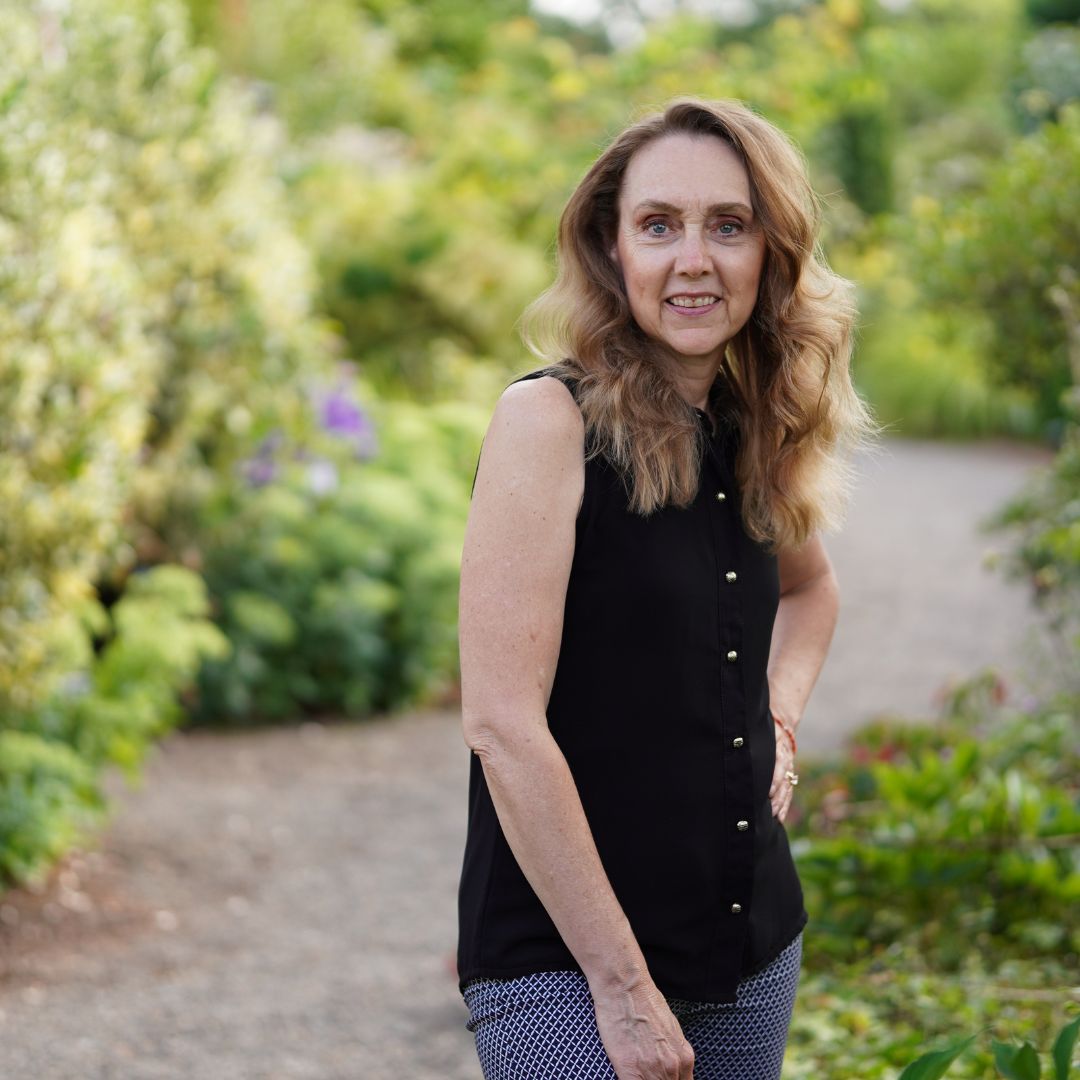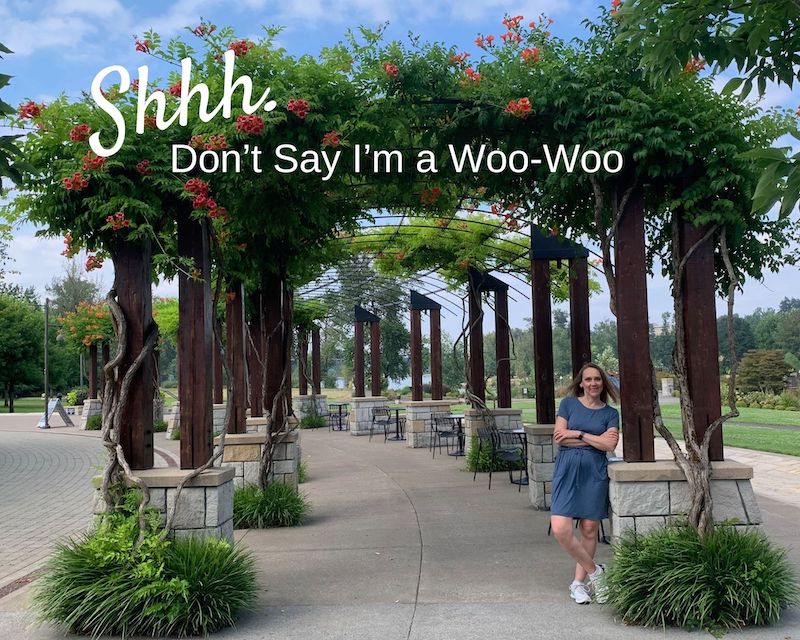I don’t watch much television. But occasionally, a show catches my eye, and I binge it on Netflix.
As a writer, I’m a little obsessed with language. So when I noticed Nicolas Cage’s new show, The History Of Swear Words, I was intrigued.
It delivered. It’s a hilarious look at how six of our top swear words came to be as powerful as they are today. (Actually, this is from an American English perspective. The power of swear words changes from culture to culture.)
There’s one takeaway that I believe to be universally true, from culture to culture, through all of time.
Words don’t have power unless we give them power.
It seems so simple, doesn’t it?
And yet, it’s one of the most complex topics we face as human beings.
Remember the singsong phrase you sang as a kid?
Sticks and stones may break my bones, but words can never hurt me?
It’s one of the biggest lies we were taught to believe as a child. Words CAN and DO hurt you all the time. And unfortunately, they’ve impacted all of us in such profound ways, most of us have no idea of their impact.
How do I know this?
- Conservative?
- Liberal?
- Religion?
- Vaccine?
- Wealth?
They’re just words. And yet, I bet you feel something just by reading them. You have an opinion on each of those topics, and you might have even had a few things to say about them over the past year. Your beliefs are strong.
But this post isn’t about politics or any other explosive concepts. Instead, what I want to talk about are the words that fill your mind every day. The words you read on your Instagram feed, the magazines you pick up, or even in the shows you watch on television.
Because sticks and stones may break your bones, but words can quite literally change you.
Change Your Words
The English language has about 500,000 words in it. Yet the average person only uses approximately 2,000 of them. That’s less than 1 percent of the entire language.
But even that isn’t the entire story. While the average person may use 2,000 words over a long period of time, on a daily basis, those word counts fall to a mere 200 to 300 words. That’s because you fall into patterns. You do the same things repeatedly, meaning your vocabulary never has to stray very far from your everyday language.
Now let’s talk about the words you use to describe your emotions – your feelings. The English language has about 3,000 words to convey emotions, yet nearly two-thirds of them take on a negative connotation.
Here’s a writing prompt for you. Spend ten minutes writing down all the emotions you’ve held onto this past year. What words did you come up with?
- Angry?
- Irritated?
- Unsure?
- Hopeless?
- Anxious?
- Overwhelmed?
Did you list any positive feelings?
In the 1970s, psychologist Paul Eckman identified six basic emotions: happiness, sadness, fear, disgust, anger, surprise. How we think about basic emotions has been upgraded many times to include several dozen basic emotions, but in every case, negative emotions far outweigh positive ones.
What that does is give the average person a lot more word choices to describe their bad moments in a day compared with positive feelings.
Words become habits. If you have to stretch more to come up with positive words, you’re more likely to stick with the negative. And by sticking with negative words, you’re more likely to live with those as your guide.
Try getting up in the morning to a feeling of “I’m okay.” Now change your words to “I’m elated!” Just the mere act of changing your words can alter the way your body responds.
Is it really that easy? There’s obviously a lot more to it than that. But if you’re conscious of the words you use, you can start to see yourself in a different light.
If you’re reading this, chances are you’re a woman right smack in the middle of life – you’re 40 or older. What fills your mind every day? If you listen to the media or pay attention to any advertisement anywhere, you’ve probably come to a conclusion:
- You’re too old
- You have too many wrinkles
- Your skin sags
- You need anti-aging everything
- You’re way past your prime
How are we supposed to stay positive when all we do is focus on anti-aging?
Anti means: you’re opposed to or against an activity or idea.
Are you really opposed to aging?
I love being right here in my 50s. I wouldn’t trade it for anything! I love who I’ve become. I love my place in the world.
So why on earth would I want to “anti-age?”
I believe words are deep-rooted, and we need to change them if we hope to be the best we can be.
Pro-aging is an entirely different way of looking at something that naturally occurs every day.
Pro means: to have an advantage in favor of something, to be in favor of.
And I definitely am in favor of being the best I can be, at every age I experience.
Change Your Mindset
Have you noticed all the overstimulating hype that’s out there right now?
- Start a business in 7 days!
- Lose all the weight you want … FAST!
- Gain 1 million followers on your Instagram account … overnight!
- Make 2021 YOUR year of miracles!
Blah. Blah. Blah.
Is it wearing on you, too?
I’ve started several businesses. I’ve authored over two dozen books. I’ve reinvented myself so many times, I understand what it takes to move from here to there.
And even I’m tired of reading all of that positivity. If it didn’t work BEFORE 2020, how the heck is it going to work AFTER one of the craziest, discumbumbled years we’ve ever had?
All of these “IN YOUR FACE” reminders that you are still missing a piece of what it takes to get where you’re going isn’t good for you – for me – for any of us.
I’m not picking on these “positive influencers” without reason. I think they’re doing their best to pull ourselves as a society out of one of the most horrific things we’ve ever experienced.
But I don’t think that’s possible when you’ve moved from trying to hold it all together BEFORE a pandemic, to completely losing your mind during one.
You can’t change your mindset any faster than you can change your words. You have to realize how you’re speaking to yourself first, what words you’re saying out loud, and only then can you work to change it.
This is something you have to notice over time.
When you look in the mirror, what do you say to yourself?
The next time you notice yourself falling towards the negative, change the state of your mindset. This is about breaking your pattern of word usage, and finding other ways to express how you’re feeling.
Let’s say you look in the mirror and tell yourself: I look so old.
What if you changed it up and looked for an alternative? Maybe you look tired instead.
Tired is something you can solve.
When I was at my lowest point, I was trying to survive on four hours of sleep each night. And it showed up everywhere, especially the way I looked. When I started changing my words, “looking tired” was something I could actively control. I changed my patterns, turned off my devices every night at 10pm, no matter what, and refused to open them again until 5am the next day. That simple act allowed me to wind down, crawl into bed early, and get a more restful night of sleep.
This is all about noticing the little things that have the most significant impact in your life.
Change Your Life
As an infant, you learn in a logical order. You crawl before you walk. You walk before you run. You learn nouns before verbs. You create simple sentences before you get complex.
Yet as adults, we assume we have everything figured out, when in reality, that’s what holds us back the most. We have history behind us, and we use that history to form our future patterns.
It’s also what holds us back.
Let’s revisit the word “proaging”. I’m a bit obsessed with it. 😉 And there’s a good reason for that.
For as long as I’ve been an adult, the world has said women have power when they’re young. It’s a culture built around valuing a twenty-something female much more than any other age.
A study performed by a dating site showed that women are attracted to men fairly close to their age. Men, however, remain attracted to women in their early twenties throughout their lifetime.
Is that realistic? Not at all. But a lot of that is the media’s portrayal of the perfect woman being in her youth.
Times are changing. And we’ll see a shift in opinions as it does.
I believe a lot of that starts right here with us – with us as individuals.
I don’t want to look anything but my age. I’m perfectly fine being in my fifties.
Which is also why I want to redefine what it means to be a fifty-something woman.
Proaging can accomplish that.
I don’t want to take anything away from the face I put out to the world. However, I do want to be able to put MY best face forward.
I choose to associate with people and companies that have the same outlook on life.
Like Boom Cosmetics. They believe in proaging; they believe in being the best YOU at every age.
Say the empowering words they mention in their article with me:
I am beautiful.
I am confident.
I am the woman I’m meant to be.
If you change your words, you’ll change your mindset, and very quickly, it will change your life!


+ show Comments
- Hide Comments
add a comment